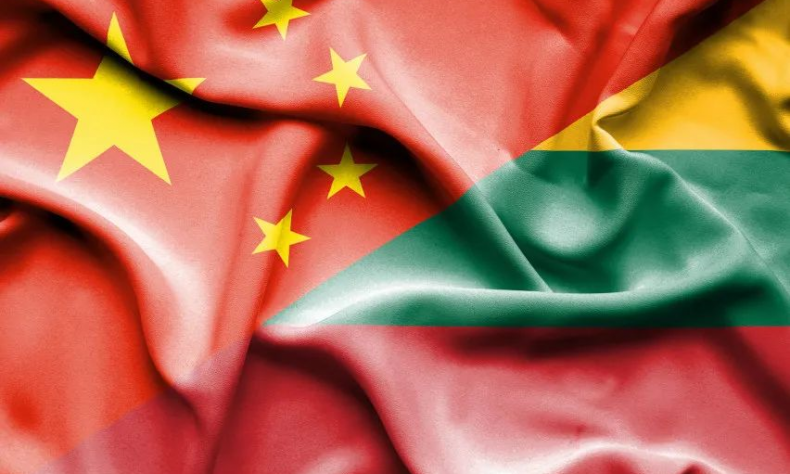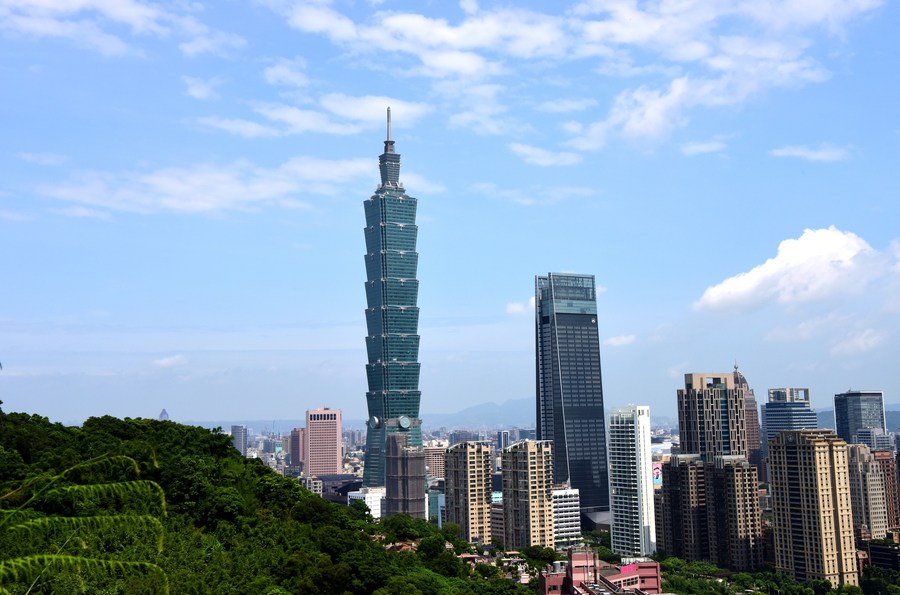Walking on Thin Ice

Acting against China will not only deprive Lithuania of opportunities to obtain investment from China and cash in on the vast Chinese market, but may also see Lithuania get its wings clipped when it tries to expand international political relations.
Lithuania, a country of less than 3 million people, has drawn international attention by playing the “Taiwan” card. Yet there was little time for Lithuania to indulge in the pleasures of basking in the global spotlight before the Baltic country bumped into strong countermeasures from the Chinese side.
The offender here is the Lithuanian Government, which has allowed the Taiwan authorities to set up a “representative office” in Lithuania under the name “Taiwan” despite the Chinese Government’s strong opposition. This is seen as a serious breach of China’s sovereignty and territorial integrity. On August 10, the Chinese Foreign Ministry announced its decision to recall China’s ambassador to Lithuania and demand that the Lithuanian Government recall its ambassador to China.
Prior to Lithuania’s move, no country in the world has ever allowed the Taiwan authorities to open a representative office in the name of “Taiwan:” not in the U.S. or in Japan, where there are Taipei economic and cultural representative offices. In the few countries that maintain no diplomatic relationship with China but do have official exchanges with the Taiwan authorities, agencies were set up in the name of the “Republic of China.”
Both the “Taipei” and “Republic of China” references regard Taiwan as a part of China, a belief totally different from the concept of “Taiwan.” The secessionist efforts by the island’s ruling Democratic Progressive Party can only meet with strong opposition from the Chinese Government and people. Lithuania’s move is therefore tantamount to openly advocating “Taiwan independence,” a severe violation of its commitment to the one-China principle made when the two countries established diplomatic relations.

Then the question becomes that of why the Lithuanian Government is coming to the fore at this very moment to stage a rival show against China. This perhaps stems mainly from the current administration’s “political speculation.” After declaring independence from the Soviet Union in 1990, Lithuania was enthusiastically approaching the West and joined NATO and the EU in 2004. Historical and realistic reasons have converged to make it anti-Russia.
Prior to Gitanas Nausėda assuming the presidency in July 2017, Lithuania had enjoyed friendly ties with China. This right-wing president, however, in order to win support from the U.S. Government, acts as a vanguard in the U.S. efforts to contain China. Upon taking office, Nausėda claimed that Chinese investments might pose a threat to Lithuania’s national security.
Lithuania’s anti-China sentiment turned even more radical after the ruling coalition, dominated by the center-right Lithuanian Christian Democratic Party, came into power in the parliamentary elections of October 2020. In January, it banned the country’s airports from using safety detectors produced in China. Four months later, it pulled out of the 17+1 cooperation mechanism between China and Central and Eastern European countries.
At a time when the Joe Biden administration attempts to rally EU members into an anti-China alliance, crucial members like Germany and France are reluctant to join given their close economic ties with China. Lithuania, however, smelled the opportunity to curry favor with the U.S.
Moreover, the U.S. considers China and Russia to be its foes and the relationship between Lithuania and Russia is one of extreme complexity, tagged with moments of tension. China, for its part, enjoys a beneficial relationship with Russia and so by natural deduction Lithuania chooses to side with the U.S. against China.
The Lithuanian Government believes that China has no means to harm its interests as both countries don’t have any substantial economic ties. Nevertheless, the reality is that it stands to lose. A lot. Nowadays, big powers, including the U.S., are all trying to work together with China. Acting against China, then, will not only deprive Lithuania of opportunities to obtain investment from China and cash in on the vast Chinese market, but may also see Lithuania get its wings clipped when it tries to expand international political relations.
Lithuania has to weigh the pros and cons of its most recent choice, and certainly its potentially severe consequences.
 Facebook
Facebook
 Twitter
Twitter
 Linkedin
Linkedin
 Google +
Google +










